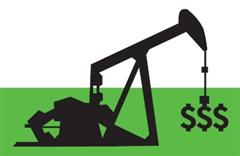Houston-based Southwestern Energy Co. is facing more lawsuits because of destructive hydraulic fracturing (a.k.a. fracking) practices.
Southwestern is already accused of contaminating a dozen Pennsylvanian families’ drinking water, and now Arkansas families are also claiming that Southwestern’s fracking for unconventional gas is poisoning their freshwater. What’s more, Tim Holton, lead lawyer for the case believes that hundreds of people may join this latest suit, which seeks millions of dollars in damages, and is asking the courts to require independent monitoring of water supplies and public health in areas near to fracking activities.
Of the growing damage in Arkansas, Holton stated:
“When you take certain action such as drilling and fracking, there are consequences to it and when you have a consequence as a result of it, it’s their responsibility to step up.”
And separately, he added:
“…I think to a large extent people wonder exactly how much do we know about what is being done to the earth when you hydraulically frack rock.”
It would seem that the damage caused by drilling for unconventional gas grows worse by the day. In all, four lawsuits were launched last week against Southwestern and other gas drillers in Arkansas. Two (against Southwestern) for the contamination of freshwater, one claiming that drilling is causing earthquakes, and another seeks damages for the disruption of quality of life because of compressor stations.
Stephanie Merrill, Freshwater Protection Coordinator for the Conservation Council of New Brunswick (CCNB Action) spoke on the radio [podcast] last week discussing Southwestern’s (a.k.a. SWN in Canada) activities in Arkansas, but also of the very real risks that fracking poses in New Brunswick, one of Canada’s easternmost provinces.
Unfortunately for New Brunswickers, SWN has the government’s blessing and is in fact a close partner working hand in hand with provincial leaders who are anxious to exploit North America’s largest reserves of unconventional gas. In fact, the company has committed to invest $47 million [pdf] there over the next three years.
And yes, the news gets worse. Last week, the province’s Energy Commission released its 10-year energy plan [pdf] after an extensive public engagement campaign involving meetings with more than 60 stakeholder groups, listening to 75 public presentations, reviewing 1,400 online and 200 in-person surveys, as well as another 200 responses to the initial feedback document.
The energy plan entails exploiting large amounts of unconventional gas, which also means fracking as much as possible in order to quickly and easily extract the dirty gas. Increasing the use of fossil fuels is said to help the province transition towards renewable energy sources:
“The transition to a renewable electricity supply would need to be supported by natural gas as the lowest-emissions fossil fuel that has projected cost stability for at least the next 10 years.”
Natural gas is also seen as a potential alternative transportation fuel, an expanded heating source and numerous other applications.
Ironically, drilling for gas will help future generations to “decide their own direction on energy use.” It actually says these things. The province is also working on a Climate Change Action Plan for 2012, which will no doubt become an even larger challenge since unconventional gas releases huge amounts of carbon pollution.
It is times like this when you really have to wonder what some politicians are thinking. For those in New Brunswick, let’s hope this plan does not come to pass.
Read the New Brunswick Energy Commission’s Final Report in English [pdf] and French [pdf].
Subscribe to our newsletter
Stay up to date with DeSmog news and alerts






